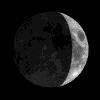Thursday, May 27, 2010
Mainstream Religion a Unifying Thread: Part V Hinduism
Existing at least two or three thousand years (if not much more) before the existence of Buddha, approximately 2500 years ago, Hinduism is really old. In the last segments of the series one problem that came up in regards to Abrahamic religion, was the notion of a mystical tradition being lost in translation and understanding today. Hinduism, if I may be permitted to call it that does not suffer from this problem.
Hinduism is not a monolithic entity as is the case for many mainstream religions. Hinduism is not one codified set of practices and beliefs. It is a name given to common threads in Indian religion. One of these threads is the division in scripture from what is heard and what is read. Much like the oral and written versions of the Torah, a tenet of Hinduism is the primordial Aum existing before the creation of the universe like the primordial Torah. With that said, Hinduism is overtly mystical and does not share the same problems as Judaism and Christianity as far as theology is concerned. The mystical tradition in most of Hinduism is strong. Astrology is permissible and a distinctively Indian system of Astrology exists, which bears similarities to Western Astrology. Whether it’s the six or seven chakras and their many meanings, or the 100,000,000 gods, or the energies of the universe depicted in the Trimurti—Brahma, Vishnu, Shiva, Hinduism retains its mystical autonomy. Thus, despite not being a codified and monolithic thing, Hinduism preserves what is truly spiritual in the tradition.
The problem with Hinduism still has to do with its age. In this case it is a slight reluctance to change. The ascetic path can bring some spiritual experiences so-to-speak. Yet, these experiences pale in comparison to the middle paths offered in Buddhism and even Confucian and Daoist renditions of similar mystical tenets as Hinduism. I will not discuss the ontological differences between Atman (Self) and Anatman (No-self) here, but I will qualify my point with the following: When the Buddha appeared and died, he was later adopted by Hinduism as the ninth avatar of Vishnu. He was said to have come to deceive the people into believing that there was no immortal atman, or self, or soul. In this way, the religion displayed a reluctance to change and adapt its ontological understandings to some key advancements in philosophy such as those of the Buddha. This is not to say that all of Hinduism thinks this way. Hinduism is not a static and unified set of beliefs. Personally, the Hindu system of Astrology and pantheon of Gods provides me with everything mainstream Buddhism seems to lack. Yet, Hinduism is still old—really old. And with that, comes the problem of application. Asceticism for one, is difficult for Westerners to choose as a lifestyle, and even more difficult to understand.
Subscribe to:
Post Comments (Atom)



No comments:
Post a Comment